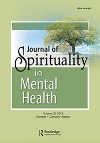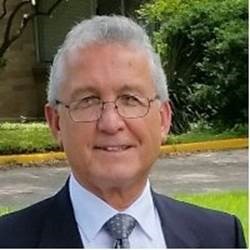Dear Members of the International Association of Christian Chaplains:
Greetings! I wish everyone well. As you know there are many people sick with the flu all around the United States of America (USA.) and across other countries we serve. Please keep chaplains and those that are within our care in prayer. God’s grace, healing, and blessing be upon you, your families and those you serve.
I am writing to provide a brief update regarding some new information about IACC in this New Year.
As many of you know, the IACC website has received a facelift! Please take some time to visit us. Go to: www.christianchaplains.net. You will find that it is user friendlier in regards to getting the information you need quicker and clearer. Significant items to locate on the website that is useful to you are the following:
· Annual Renewal and Re-Certification requirements
o Click on “Forms” and you will access the following forms and procedures you will need to renew and re-certify your membership annually
§ Guidelines for Local Chapters
§ Membership and Board Certification Process
§ Members Annual Update Report Form
§ Continuing Education Form
· Facebook Page
o We also just created a Facebook page. This will help us get the word out about IACC through Facebook users and also allow for greater connectivity among our members. Feel free to join it any time. Click on: https://www.facebook.com/Internationalassociationofchristianchaplains/
· Members Directory
o We have listed members in 24 states in the US and 5 countries around the world on our new Membership Directory. This directory can help you locate other members that are in your state and region. I encourage to contact them and see if there is a local chapter to join or even begin one of your own. You can locate guidelines for local chapters both in the “Forms” section as well as in the “About” section. To access the directory for reasons stated above please let us know and we will provide you with the password. Please exercise confidentiality when using the directory. The contact information is for members only to form community. It is not to be used for inappropriate sharing outside of our IACC communities.
· Updates
o We update continuing education opportunities and we provide an opportunity for IACC members to post a blog on the “Updates” section. On this note, we would love to hear from you and about your ministry! It is our hope within the next couple of months to highlight the various ministries that our IACC members are engaged with.
· About
o Listed in the “About” section is the following:
§ Mission and Philosophy of IACC
§ Code of Ethics
§ IACC Board of Directors
§ Contact
§ Local Chapters
· Contact
o Please feel free to stay in touch with us via e-mail at: info@christianchaplains.net
o Our mailing address continues to be: 5804 Babcock Rd. PMB 189, San Antonio, Texas 78240-2134, USA.
Lastly, if you know of a colleague in chaplaincy, pastoral care/spiritual care practitioner, pastor, minister, or missionary who is interested in becoming a member of IACC please direct them to our website and our e-mail. For those who are interested in board certification as a professional chaplain, please have them click on “Board Certification” from our website. Recently IACC has adopted the Common Qualifications and Competencies for Profession Chaplains revised in 2017. As part of the requirements for board certification, and in addition to two written essays about their theology of pastoral care and autobiography, the candidate will need to submit 30 essays that reflect the 30 common competencies outlined on our website.
For IACC members already board certified, we have increased the amount of continuing education hours to 50 per year. In addition to seminars, workshops, local IACC chapter meetings, symposiums, academic classes, etc., the hours can be accomplished in several other ways. MNT2: Document fifty (50) hours of annual continuing education. (Recommendation that written reading reports be included as continuing education. Also, personal therapy, spiritual direction, supervision, and/or peer review be acceptable options for continuing education hours.)
Please feel free to be in touch with me or any of the members of the IACC Board of Directors.
The peace and shalom of our Savior and Lord Jesus Christ be with you, and our Lord’s love connect you with the people of God’s community on earth!
Blessings,
Rev. Dr. Paul D. Kraus
President, IACC




